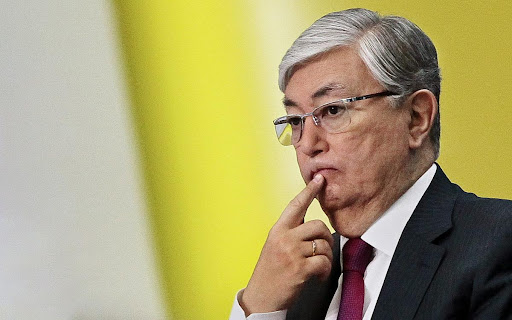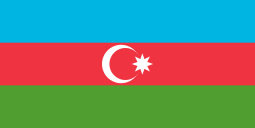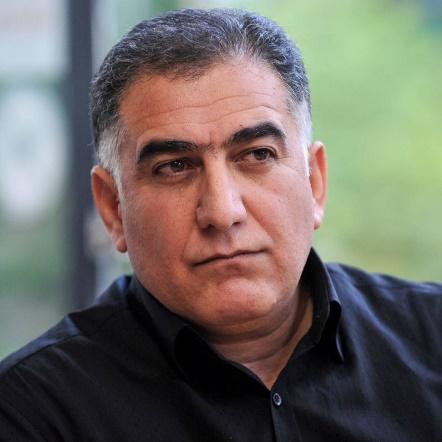
Tokayev's generous plan…
The Kazakh leader promises a revolutionary change
19 March 2022
The changes announced by Kazakh President Kasym Jomart Tokayev in his address to the nation two days ago can be considered a real innovation and a positive example for Kazakhstan and, in general, the post-Soviet space.
The president proposed a transition from the existing form of super-presidential rule in the country to a presidential republic with a strong parliament. He announced the conversion to reforms that promise significant changes in the country's political system:
- The head of state, as well as akims (mayor - the head of the regional executive body) and heads of law enforcement agencies can not be members of a political party.
- Relatives of the President are prohibited from holding high government positions.
- The parliament will be elected by mixed elections - 70 percent proportional, 30 percent majority.
- Akims (mayors) will be elected.
- Registration of political parties is becoming easier.
- The Constitutional Court is established.
The highlight of Tokayev's proposals is his intention to replace the existing authoritarian system in the country with a diversified and strong control mechanism.
"The long-term interests of the state are more important to me than any additional lever of power or the ability to control the situation. Monopoly in politics leads to various social evils and degradation of the state. Today, everything depends on the president, and this is not right," Tokayev said.
One of the most important proposals of the President of Kazakhstan in the reform package is to reduce the quota of the People's Assembly of Kazakhstan (Advisory body established under the President to form the national policy of the country - ed.) in the upper house of parliament and abolish the quota of 10% in the lower house. Tokayev said that no special privileges should be created for any person or organization.
Under the new proposals, the Senate, the upper house of parliament, may or may not like the laws. Only the lower house - the Assembly - will be engaged in drafting laws.
One of the important changes for the political system is the simplification of party registration. Tokayev proposes to reduce the number of members required for registration by 4 times - from 20,000 to 5,000. This would be a change that would accelerate the process of political organization in society and help enrich the democratic spectrum.
Tokayev proposed to create three new administrative-territorial units in the country. The new provinces of Abay, Ulutau and Jetisu have played an important role in the historical formation of the Kazakh people. It should be noted that this proposal is appreciated by the Kazakh society, political parties, and even potential political rivals of Tokayev, and is considered a "strong move."
The reform package also includes many proposals in the socio-economic sphere.
As sensitivity to Kazakhstan is currently linked to the political system and the potential for democracy, we believe that Tokayev's plans will soon be closely followed by anyone with an interest in the region. Implementing the process requires a lot of effort and resources, but the result can be to the benefit of the country and society.
We must also take into account that Kazakhstan is the largest Turkish state in the region in terms of territory, geostrategic position and economic potential. If Tokayev's proposals are implemented normally, Kazakhstan will soon become one of the locomotive countries of the Turkic world, and Tokayev will become an important player among the leaders of Turkic-speaking countries.
Of course, as local political technologists say, against the background of Russia's current aggressive behavior, it is obvious that the Ukrainian problem is not included in the President's address to the nation. Even if this step is intended to "distract" from the issue, the reform package promises significant prospects for Kazakhstan itself, its internal development and its importance in the Turkish geography.
Of course, these steps may not seem sincere at first glance by a leader who invited a foreign military force to the country only two months ago and, to put it mildly, signed an agreement to use weapons against his own people. According to many experts, Tokayev is not a democratically elected leader, so it is doubtful that he is a sincere democrat. But what has happened so far is history. Kazakhstan's biggest neighbor, Russia, under political pressure of which it has lived for many years, is no longer the same Russia. Moreover, Tokayev himself is an experienced and professional diplomat. Like for everyone else, history has given him an opportunity. Now he can either turn this opportunity into a formula for salvation for himself and his country, or gain time with false promises and get himself into the archives of history. The choice belongs to Kasim-Jomart and the people of Kazakhstan. Or there are, have been and will be those documents, packages, and reform promises in many countries. If this doesn't turn out to be true, then, in the words of Erdogan, what's the difference - be it or not….
Translator: Gulnara Rahimova













